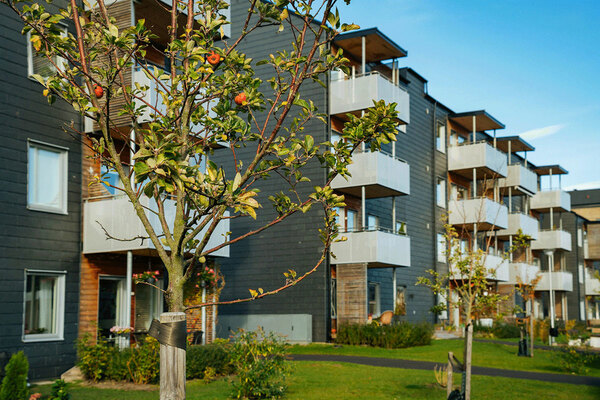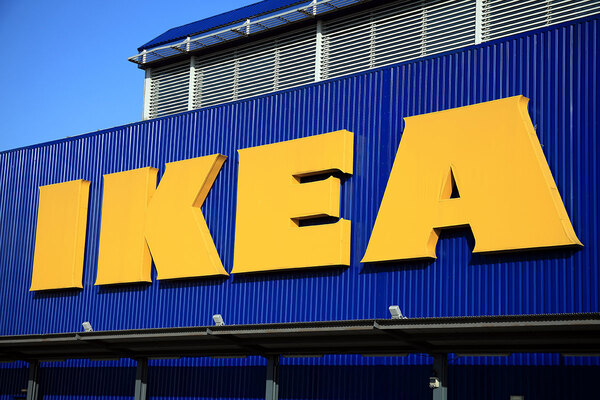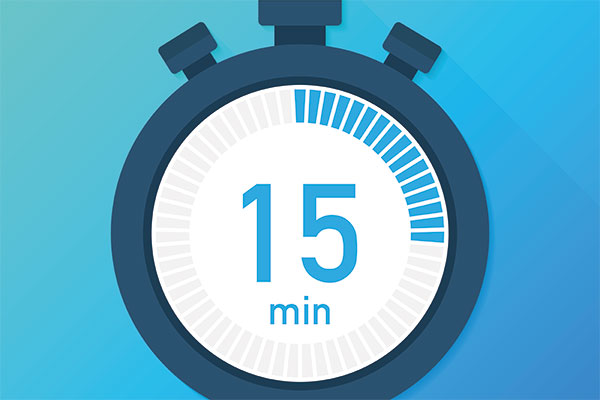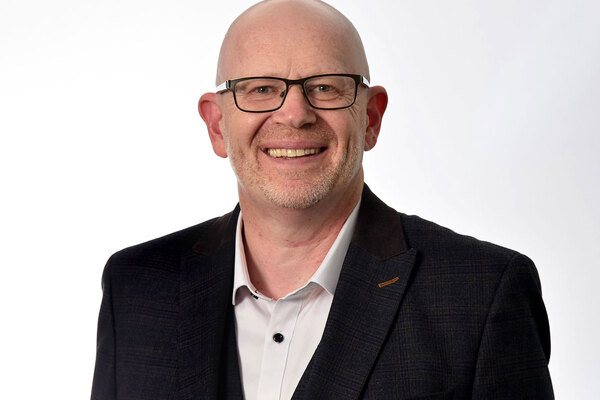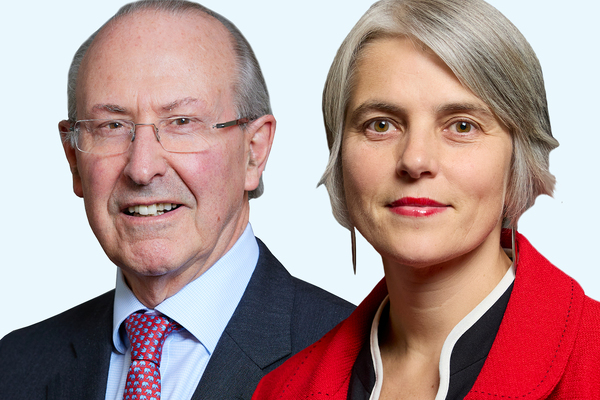15 minutes with... Mark Perry
Mark Perry has been chief executive of Vivid since its creation, following the merger of First Wessex and Sentinel in April 2017. He talks to Jack Simpson about the pandemic, shared ownership and Baby Shark
We have to start with the pandemic. What was it like for the business in the early days last year?
The pandemic came quick and fast, didn’t it? I think we were all sitting there in January thinking this is something that’s happening over in Asia and we don’t need to worry about it, but two months later, we were sending everyone home from the office. There was some tremendous stuff done in response, not just by us, but across the sector.
When the pandemic started, we set out with the board to achieve some broad measures of success. There were four points, and at times these could be really stark: not causing death by spreading the infection was one, keeping the business viable was another. We also acknowledged that our service standards would be hit and aimed to keep them within 10% of our key performance indicators (KPIs). Our fourth was to do the right thing for people, rip up the rulebook and make sure we support people.
I spoke to the board every day. In the early days, I spoke to my executive team three times a day. We spoke at eight o’clock in the morning, two o’clock in the afternoon, and then, after whatever the announcement was on the news, we had a conversation about that.
Has the period changed how the organisation works?
One thing we have done is decentralise decision-making in a way in which we probably never would have done a year earlier.
We’re trying to capture some of that in the business moving forward. A project that took 16 months could now be turned around in three weeks. We are now thinking about how we can get on and do things. We also accept failure in a way we didn’t a couple of years ago.
We’re keeping flexible working. People will come back for some things, but basically we are saying you are decanted, let’s keep that up.
We’ve seen a positive impact on our KPIs. Customer satisfaction has gone up, our income collections have improved slightly, and our arrears have come down.
We all now understand more about our colleagues through Zoom calls or Teams meetings. When you see a picture in the background or a book, you are getting more of an insight into each other’s lives. There is a realism to it, and we all come to appreciate each other a bit more.
You’ve started a foundation. Tell us more about that.
We’ve launched Vivid Plus and endowed it with £21m over five years so we can work with communities to see where we can have a big impact. We’re doing stuff in one of our local authorities around breaking up gang culture units. We probably would have done this stuff anyway, but we’ve gained a sharper focus from the pandemic.
Our plan for the charity is eventually to have it almost run by communities. This would mean more tenants or more customers are involved, and maybe some local charity representatives, to give it sort of the heart and the soul.
You’ve signed a deal with BoKlok, the Ikea-owned modular developer. What are the plans for that?
We’ve been thinking for three years about ways of putting homes on the ground quicker and more sustainably than your standard bricks and mortar build. BoKlok was looking for partners in the housing association/local authority world and looked at our development ambitions. It became apparent that rather than doing a site-by-site transaction deal, it was worth putting together a joint venture. We were the first to do so with them.
We’ll jointly find sites. We’ve got about 10,000 plots, BoKlok is looking through our land and we are looking through theirs. We’ve got one project in Worthing, which is just taking off, and we’ve got four or five other sites identified.
BoKlok sells and allocates them in a slightly different way. You register for a ballot, and then essentially you are picked. It’s a very egalitarian process, which we like.
Shared ownership made up the highest proportion of your new homes. Is it important moving forward?
Yeah, shared ownership is really important. The strategic partnership programme has revolutionised our development numbers, but it only works when you have cross-subsidy coming from our other stuff.
In our geography, shared ownership does really well. I think at the end of the year, we had seven unsold units and within two weeks of the year starting, they were sold. There are changes coming in terms of lease and repairing obligations but that’s OK. We expect obligations to go onto the grant rate.
We’ve been trying for the past few years to get the initial first-tranche percentage down for buyers because we see shared ownership as an affordable product. If you sell 45 or 50% for the first tranche that’s fine, but a lot in society can’t afford that. If you’re not careful, you lock them into the private rented space. We’ve changed our literature to encourage people to come in at a lower percentage – it’s worked well.
If I were speaking to you on Zoom, what would I see behind you [this interview was done over the phone]?
You’d see an old record player with recordings of operas in it. I like any music – I’ve got opera, musical theatre tunes, Spandau Ballet, Haircut 100 and Duran Duran. I’ve got young kids and they played Baby Shark continuously for three months – that got annoying.
‘15 minutes with…’ series
In our ‘15 minutes with…’ series, we have a quick chat with the biggest names in the sector about the most important issues.
Previously, we have featured:
Mushtaq Khan, chief executive of the Housing Diversity Network
Barbara Brownlee, chief executive of Soho Housing
Eddie Hughes, former minister for rough sleeping and housing
Geeta Nanda, chief executive of Metropolitan Thames Valley Housing
David Bogle, chair of Homes for Cathy
Laurence Carr, money coach at Yorkshire Housing
Dinah Roake, chair of the London Housing Panel
Sheron Carter, chief executive at Hexagon
Helen Spencer, executive director of growth at Great Places
Julie Wittich, executive director of assets and sustainability at Accent
Ian Mulheirn, executive director of policy at the Tony Blair Institute for Global Change
Kevin Ruth, chief executive of Together Housing
Piers Williamson, chief executive of The Housing Finance Corporation
Seyi Obakin, chief executive at Centrepoint
Fayann Simpson, senior independent director at L&Q
Mark Perry, chief executive at Vivid
Rose Bean, executive director of assets and sustainability at Abri
Ruth Cooke, chief executive at GreenSquareAccord
Ben Denton, managing director at L&G Affordable Homes
Simon Dudley, chair at Ebbsfleet Development Corporation
Emma Palmer, chief executive at Eastlight Community Homes
Tracy Harrison, chief executive at Northern Housing Consortium

